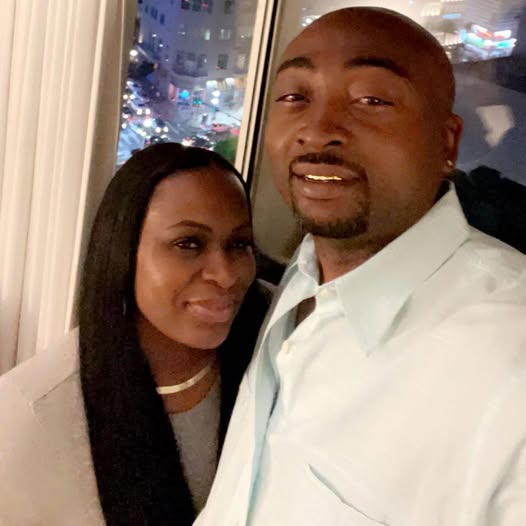HAYNESVILLE, LA — In a harrowing tragedy that has left a Louisiana community shaken, 48-year-old Rochelle Lewis was shot and killed by her estranged husband, Shamarcus Lewis, Tuesday night—despite legal protections meant to keep her safe.
The shooting took place in the family’s Haynesville home while the couple’s two children, ages 13 and 15, were present. One of the children courageously dialed 911 in the aftermath of the gunfire, a call that authorities say will forever haunt those involved.
Rochelle had done everything within the law to protect herself. She had a restraining order in place. Shamarcus, who had been arrested in November for domestic abuse and child endangerment, had been court-ordered to wear an ankle monitor. Yet, in a devastating failure of protective systems, none of it was enough.
A Mother’s Hope Meets a System’s Limitations
Court documents reveal a heartbreaking detail: Rochelle didn’t fear her husband. Despite the past violence, she believed he could change, and in interviews with law enforcement, she advocated for counseling, not incarceration. It was a choice rooted in empathy—a belief in redemption over retribution. Sadly, her trust was met with betrayal, not transformation.
Shamarcus Lewis, whose abusive history had already prompted legal intervention, opened fire on Rochelle multiple times in what authorities now describe as a domestic homicide. He fled the scene, initiating a brief manhunt that ended with a 10-minute standoff on Interstate 20, where he turned the gun on himself. He remains in critical condition.
Children Left Behind and a Community in Grief
While Rochelle’s life was stolen, the trauma left behind is equally devastating. Her two children—now motherless and bearing the scars of witnessing unspeakable violence—are being cared for by family and support services. “They lost their mother and may lose their father too,” said a family friend. “It’s an unbearable reality no child should face.”
Neighbors described Rochelle as a kind, generous woman who loved her children deeply and wanted peace more than anything. “She was strong,” said a co-worker from the local community center. “She wanted healing, not hate. But love can’t always stop violence. That’s why we need the system to step in when someone’s at risk.”
A System Under Scrutiny
This tragedy has reignited urgent questions about the effectiveness of restraining orders, ankle monitoring systems, and the criminal justice system’s response to domestic violence.
Despite a court order, Shamarcus’ ankle monitor failed to prevent the murder. Whether it was malfunctioning, not monitored in real-time, or bypassed entirely remains under investigation. Legal experts say the case underscores how tools alone—without enforcement and rapid response—may offer only the illusion of protection.
Advocates are calling for reforms in how domestic violence is handled in both the legal and law enforcement systems. “Rochelle’s death was preventable,” said Tanya Mitchell, director of a local domestic violence shelter. “She followed the rules, asked for help, and gave him the chance to change. The system didn’t protect her. We must do better.”
Remembering Rochelle
Rochelle Lewis is remembered not just as a victim of violence, but as a woman of compassion, strength, and enduring hope. A dedicated mother, a loyal friend, and a beacon of quiet resilience, she leaves behind a legacy that now calls us to action.
Plans for a memorial are underway, with the community organizing a vigil in her honor to advocate for stronger protections for survivors of domestic abuse.
Her name must not be added to a long list of those failed by a broken system without change. Rochelle Lewis deserved to live.
If you or someone you know is experiencing domestic violence, please contact the National Domestic Violence Hotline at 1-800-799-SAFE (7233) or text START to 88788 for confidential support.

Leave a Reply